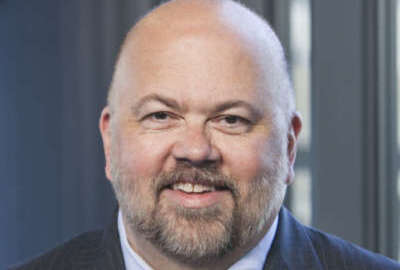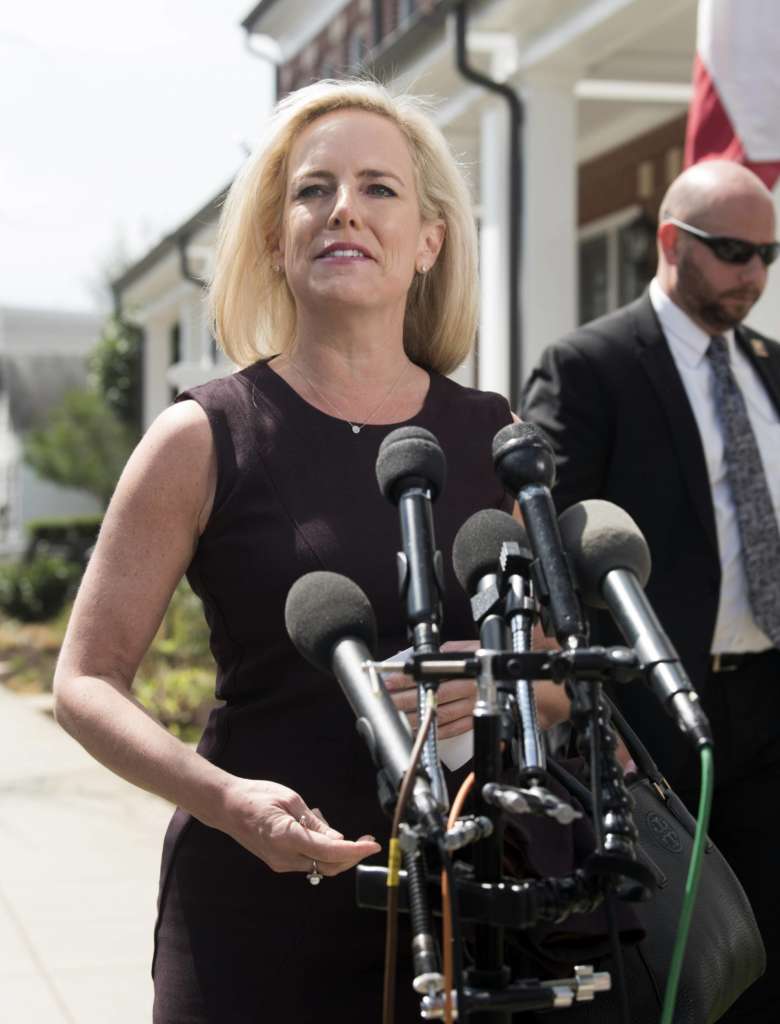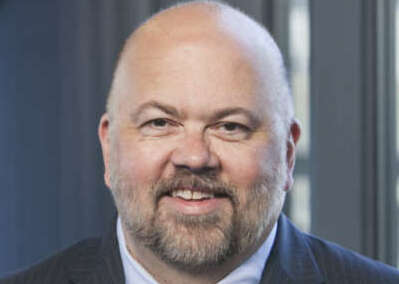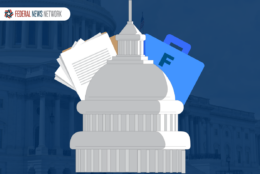
Do all those ‘acting’ assignments at DHS matter?
After so many departures, former CHCO for the Department of Homeland Security Jeff Neal says employees deserve stable leadership for success.
This column was originally published on Jeff Neal’s blog, ChiefHRO.com, and was republished here with permission from the author.
With the resignation of Department of Homeland Security Secretary Kirstjen Neilsen and Under Secretary for Management Claire Grady, the following DHS positions are now acting:
- secretary
- deputy secretary
- under secretary for Management
- under secretary for Science and Technology
- administrator of the Transportation Security Administration (while the administrator is acting deputy secretary)
- director of Immigration and Customs Enforcement
- commissioner of Customs and Border Protection (while the commissioner is acting secretary)
- under secretary for Strategy, Policy, and Plans
- administrator of the Federal Emergency Management Agency
Those are only the top jobs that are filled by acting officials, the middle and lower levels have more. Should we care that a large number of political jobs do not have permanent appointees?
In a word, yes. It is common for people outside of government to look at situations such as this and assume that it does not create problems when key jobs are filled by “acting” assignments. After all, DHS has 245,000 military and civilian employees. It has more than 800 senior executives. DHS and other government departments and agencies should basically operate on autopilot, right? Before I answer that, let’s take a look at what the department does for the American people.

DHS was established by the Homeland Security Act of 2003. It brought together units from across government to focus on homeland security issues, with the intent of reducing or eliminating overlap, improving collaboration and building stronger security. Whether it has accomplished those goals is a question for another post, but regardless of your political views or opinion about DHS, it is clear that the department provides absolutely critical services that are essential to the security of everyone in this country.
Before I joined DHS as its chief human capital officer in 2009, I had an idea what it did but did not know how dedicated its 200,000 civilian and 40,000 Coast Guard personnel truly are. Here are just a few of the responsibilities of DHS, according to the 2019 DHS Budget in Brief. Components with acting leaders are bolded:
Coast Guard
The Coast Guard is a law enforcement agency, a member of the U.S. Intelligence Community, and a first responder. The Coast Guard is the principal federal agency responsible for maritime safety, security, and environmental stewardship in US ports and inland waterways, along more than 95,000 miles of coastline, throughout the 4.5 million square miles of Exclusive Economic Zone (EEZ) and on the high seas. In addition, the Coast Guard manages six major operational mission programs: Maritime Law Enforcement, Maritime Response, Maritime Prevention, Maritime Transportation System Management, Maritime Security Operations, and Defense Operations.
TSA
TSA’s mission is to protect the nation’s transportation systems to ensure freedom of movement for people and commerce. TSA screens more than 750 million passengers per year, 1.7 billion carry-on items, and 530 million checked bags. They perform over 2,000 air carrier inspections at foreign airports.
ICE
ICE is responsible for enforcing US immigration law by identifying, arresting, detaining, and removing illegal aliens from the U.S. ICE has over 20,000 employees deployed across all 50 states, the District of Columbia, and 50 foreign countries. The detention and removal operations get most of the press, good and bad, but most people are not aware that ICE special agents are responsible for transnational criminal investigations to protect the United States against terrorists and criminal organizations through criminal and civil enforcement of federal laws governing border control, customs, trade, and immigration.
ICE investigates immigration and customs violations, including those related to export control, human rights abuses, narcotics, weapons and contraband smuggling, financial crimes, cybercrime, human trafficking and smuggling, child exploitation, intellectual property infringements, transnational gangs, immigration benefit fraud, forced labor, and worksite enforcement.
Related Stories
Customs and Border Protection
Related Stories
CBP is responsible for securing America’s borders to protect the United States against terrorist threats and prevent the illegal entry of inadmissible persons and contraband, while facilitating lawful travel, trade, and immigration. There is a critical balance between protecting borders and ensuring that legitimate commerce can take place. The part of CBP’s mission that gets the press today is not all that they do.
In FY 2017, for example, CBP seized more than 2.1 million pounds of illegal narcotics, $97 million in unreported currency, and more than 300,000 rounds of ammunition. Their Air and Marine Agents logged over 96,000 flight hours and 34,000 underway hours. They provide search, rescue and humanitarian efforts for hurricanes and other disasters. CBP processes international trade transactions worth more than $2.4 trillion, more than 28 million cargo containers, and inspects almost 400 million travelers annually.
Secret Service
The Secret Service is most well known for its protective mission, where it protects the president, the vice president, their immediate families, visiting heads of state and government, and other designated individuals, and investigates threats against them. They also coordinate the security at designated National Special Security Events, such as the Super Bowl and summit meetings. The Secret Service also plays a vital role in protecting our economy by enforcing laws related to counterfeiting of obligations and securities of the United States, and financial crimes, including identity theft and computer fraud. In fact, that is the reason the Secret Service was established by President Abraham Lincoln in his last official act before going to Ford’s Theatre.
Cybersecurity and Infrastructure Security Agency
CISA is responsible for protecting the nation’s critical infrastructure from physical and cyber threats. This mission requires effective coordination and collaboration among a broad spectrum of government and private sector organizations.
Federal Emergency Management Agency
FEMA’s mission is to reduce the loss of life and property and protect the nation from all hazards, including natural disasters, acts of terrorism, and other disasters through a risk-based, comprehensive emergency management system of preparedness, protection, response, recovery, and mitigation. They deliver the National Flood Insurance Program, provide grants, coordinate with state, territorial, and local governments, tribal nations, eligible private nonprofit organizations, and individuals to reduce risk and improve resilience. FEMA deploys staff to disaster operations whenever needed, and every FEMA employee is engaged when major disasters strike. The agency also runs the U.S. Fire Administration, whose National Fire Academy trains more than 100,000 students annually.
U.S. Citizenship and Immigration Services
USCIS administers a broad range of programs through which it receives millions of immigration benefit applications and petitions. It processes more than 9 million immigration benefits requests per year. Through more than 230 domestic and foreign offices, USCIS processes visa petitions, adjudicates asylum claims, issues employment authorization documents and considers requests for lawful permanent residence and citizenship. The agency ensures the integrity of the immigration system by managing the E-Verify program, conducting fraud investigations, and interviewing and screening refugee and asylum applicants around the world. USCIS also performs naturalization ceremonies.
Countering Weapons of Mass Destruction Office
CWMD’s mission is to support the President’s National Security Strategy by leading the DHS’ efforts to develop and enhance programs and capabilities that defend against WMD, and to combat bio-threats and pandemics.
Federal Law Enforcement Training Centers
FLETC are the nation’s largest providers of law enforcement training, with more than 68,000 law enforcement personnel trained annually. They offer a wide range of training that is the gold standard for law enforcement training.
Science and Technology Directorate
Its mission is to deliver effective and innovative insight, methods, and state-of-the-art solutions for the critical needs of DHS components and the Homeland Security Enterprise. S&T also partners with the international community and private sector as well as federal, state, local, tribal, and territorial agencies. Just a single example is the Homemade Explosives Characterization Program, which responded to emerging threats, such as the August 2017 Etihad Airways bomb plot, by providing immediate critical data collection, physical properties of threat materials, risk mitigation and modeling, explosive detection signatures, and analysis based on current intelligence and new threat assessments. S&T’s analyses led to changes in TSA operations and screening requirements.
I will leave the legal and political questions regarding whether having acting officials is in accordance with the Vacancies Act or the Constitution to the lawyers and politicians. Let’s look at this solely from the management perspective. It is true that federal agencies survive the loss of their political appointee leaders. If they didn’t, we would be in a lot of trouble. After all, the turnover rate among political appointees in a given administration is more than 100 percent. Every appointee leaves, and some of the jobs are filled multiple times during an administration.
Latest Management News
All of those things might be less important in an agency whose mission does not cover life and death matters. DHS is not one of those organizations. Its mission does matter. It can result in more or less security for the American people. It is an incredibly complex department. It still struggles to deliver the level of interoperability that its creators envisioned. And it has more than 240,000 military and civilian employees whose work is vital.
Those people are public servants who are not going to stop working because they have an acting agency leader. After all, they showed up for five weeks when they were not getting paid. But they also deserve stable leadership. They deserve to know that their work is valued, and that their leader is likely to be there next month, or next year. They need to know that someone will be advocating for their budget and programs who is thoroughly versed in them.
Even the most talented leaders struggle to gain their footing in DHS. After serving in a leadership role in DHS, I can say with certainty that in this department stable leadership is critical to its success.
Jeff Neal is a senior vice president for ICF and founder of the blog, ChiefHRO.com. Before coming to ICF, Neal was the chief human capital officer at the Homeland Security Department and the chief human resources officer at the Defense Logistics Agency.
Copyright © 2025 Federal News Network. All rights reserved. This website is not intended for users located within the European Economic Area.






